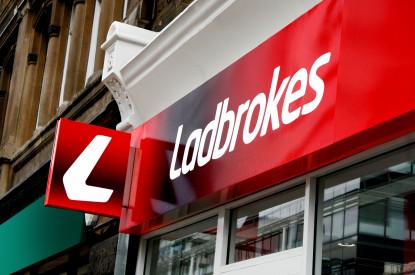Supplier News
UK – Ladbrokes in merger talks with Gala Coral
By Lewis - 23 June 2015
Bookmaker Ladbrokes has said it is in talks with the board of Gala Coral Group over a possible merger. The announcement has sent shares in Ladbrokes soaring by more than 10 per cent after it confirmed that talks were underway.
The discussions concern combining Ladbrokes with Coral Retail, Eurobet Retail and Gala Coral’s online firms and are the first move by Ladbrokes CEO, Jim Mullen, after he was promoted to the head of Britain’s second biggest bookmaker in March.
Ladbrokes said there was no certainty that the talks would lead to a deal, and possible terms and timings were also yet to be agreed. Mr. Mullen has said that the Ladbroke’s board has yet to decide if the deal was “strategically attractive” and can be presented to shareholders on appropriate terms.
Eric Opara, analyst at Edison Investment Research said: “The proposed merger is about driving Ladbrokes digital offering where it significantly lags William Hill. The recently introduced point of consumption tax increases the rewards for scale in online betting so this deal makes a lot of sense.
However investors would do well to remember that Ladbrokes have attempted this merger before in 1998 when Peter Mandelson stepped in to veto the move on competition grounds. The huge growth in the significance of the online space has certainly reshaped the competitive landscape since then, but any proposed merger may still come with conditions with respect to the company’s high street shops.”
In February, Ladbrokes said it was to close 60 UK shops after reporting a large fall in pre-tax profit for 2014, from £68m to £38m. While those plans would be unaffected by the deal, a combined business would have around 4,000 betting shops and would seek to close the gap on market leader, William Hill, which has pulled away from Ladbrokes thanks to stronger growth in its online business.
Mr. Mullen added: “A merger with Gala Coral could create a combined business with significant scale and has the potential to generate substantial cost synergies, creating value for both companies’ shareholders.”
The deal, if completed, could be classified as a reverse takeover of Ladbrokes.
Nigel Driffield, of Warwick Business School, is Professor of International Business and researches mergers.
He said: “What is clear is that the motivation from Ladbrokes’s perspective is access to Gala Coral’s online presence. Ladbrokes has tried to develop that platform, but it does not appear to have been particularly successful, due to its lack of appeal with its core customers – ie people who bet on sport.
“Ladbrokes’s online sports betting specialises in offering value to customers, so their odds and margins are typically among the best of the mainstream providers. This section of their business has performed well, and has I suspect outperformed their high street presence in recent years, though I suspect they are finding their margins somewhat squeezed with the continued growth in betting exchanges such as Betfair, especially with more discerning customers.
“What is interesting is the number of betting shops that this merged entity would have at a time when Ladbrokes has closed a number of its own shops, and so I would expect to see further rationalisation of shops after the merger. Typically, however, Coral’s shops tend to be in slightly wealthier areas than the other major chains, with Ladbrokes more evenly spread. Equally, Ladbrokes appear to have said that it has no interest in Gala Retail, the high street bingo operation.
Mr. Driffield added: “This merger was proposed some 17 years ago. For it to have re-surfaced, even without the Bingo business, makes one assume they may have already been given the nod by the competition authorities. The online market has made the sector much more competitive than it was, so one assumes that the main motivation for this is a desire to reduce operating costs both online and in the high street through rationalisation.
“Reverse takeovers usually refer to the shares of the purchased company being put into a holding company, which is then 100 per cent owned by the acquiring company. In this case, whether both brands will survive is less than clear, but it is clearly felt that the Gala Bingo brand is strong, and is not to be included in this.”


